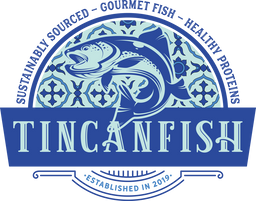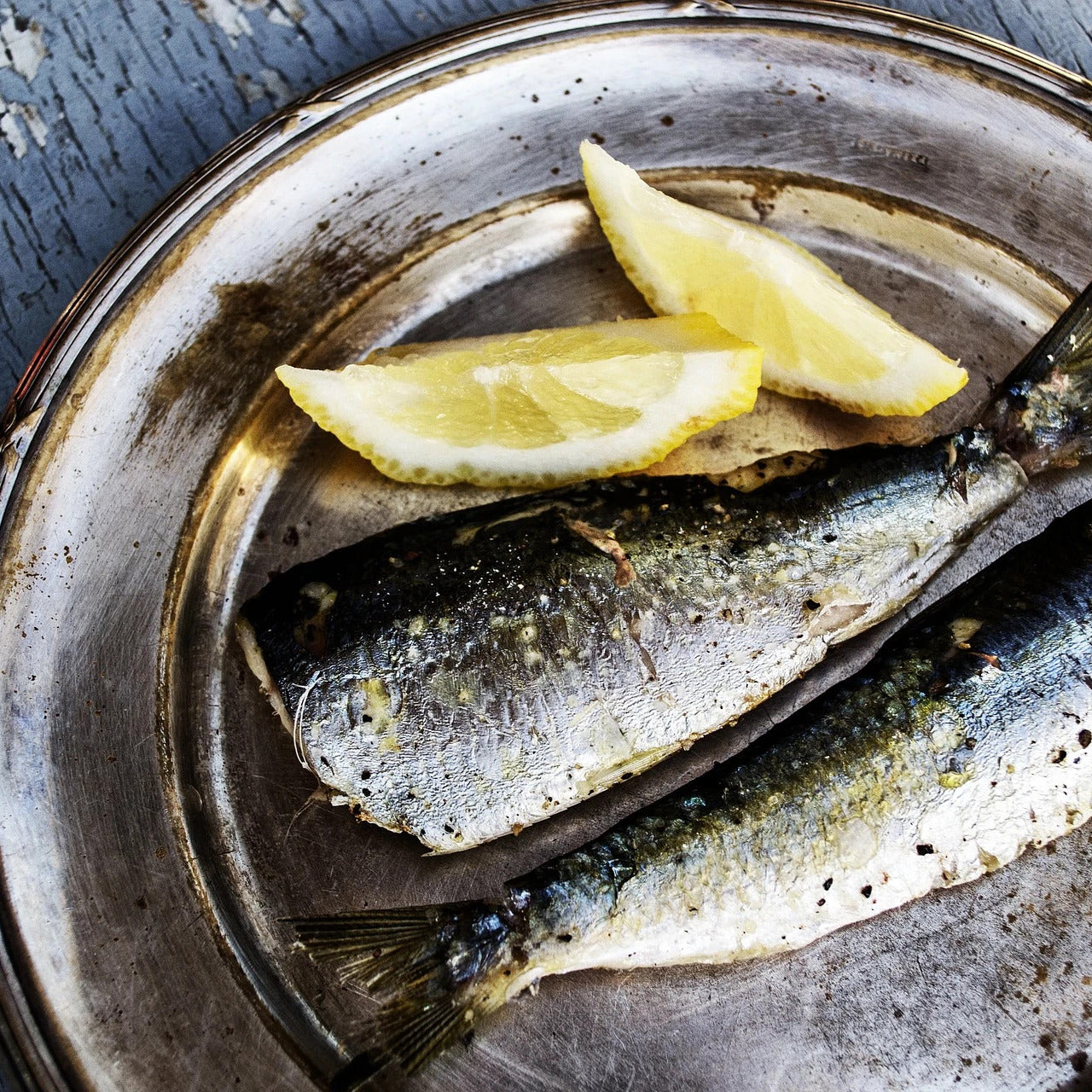(NOTE: nothing in this article should be construed as health advice. Ask your physician if you have questions.)
What Are Sardines?
Sardines are probably best known for their popularity with cats and pizzerias. However, there is more to this canned fish than meets the eye. Though sardines have a mixed reputation, they are a delicious addition to a healthy diet. They are high in protein and healthy fat (more on that later) while being low in carbohydrates. High-quality sardines are also delicious! This makes them a great choice for those on a paleo diet (or anyone else!).
Sardines come in many forms, flavors, and qualities. In fact, the term “sardines” can refer to a number of different species of fish. They are all small herring, often the immature young of many different species. Though there is variability in sardines, all types contain tons of protein and many essential nutrients! Purchasing high-quality sardines ensures that you get the most delicious and nutritious sardines available.
These fish come packaged in sealed cans. The canning process uses heat to make the fish shelf-stable. They are fully cooked inside of these cans. Due to their small size and preservation, the entire fish is edible. This makes them a quick and easy way to add protein, nutrients, and flavor to a meal.
Sardines Are a Perfect Paleo Protein
A paleolithic diet (paleo) is a popular dietary plan that focuses on eating food that our ancestors would have eaten before agriculture became widespread. This diet is based on the “discordance hypothesis” which states that humans have not had time to evolve adaptations to the rapid changes in diet since the rise of agriculture.
But Paleolithic People Didn’t Have Canned Fish!
It may seem counterintuitive that canned food fits an ancient diet. However, canning does not require additives and simply kills all contaminants with high heat. This process aligns with a paleo diet in two essential ways. It requires no additives AND it cooks the ENTIRE fish.
The one exception to this rule is BPA lined cans. Many lower-quality products may contain BPA, a chemical used to make plastics. This chemical has been shown to mimic estrogen, disrupting normal human hormones. It is important to make sure that your sardines are BPA free.
Cost-Effective Paleo
The paleo diet recommends avoiding grains, dairy, sugar, and processed foods. It is also recommended that subscribers to this diet consume only grass-fed and lean meats. All of these recommendations are consistent with a healthy diet. However, this diet can prove to be quite expensive.
Consuming high-quality meats and nuts to get your protein can put a dent in your wallet. Sardines are a great way to add protein, fat, and nutrients to a paleo diet. A 3.75 oz can of sardines contains 23 grams of protein with only 190 calories!

Eating EVERY Part of the Fish
When most sardines are canned, the entire fish is included, bones, organs and all! Though this may sound unappealing, the cooking process softens the bones, making whole sardines easy to eat.
Eating the entire animal is consistent with the paleo philosophy. Our ancestors couldn’t easily process meats to remove the “odds and ends”. The health benefits of this practice are well supported. Organs are a great source of nutrients that can be difficult to get from other sources.
Eating sardines is an easy and palatable way to get many of these benefits. Chicken hearts or liver are more difficult to find and spoil far faster than sardines. Some may also find organ meats less palatable than sardines. This makes sardines a great choice for paleo dieters or anyone looking to supplement their diet.
Sardines Are Full of Nutrients
As hinted earlier, sardines contain quite a few benefits beyond protein. These fish may be small, but they are brimming with healthy fats, trace minerals, and vital nutrients! Here are some of the most important nutrients provided by sardines.
- Calcium
Sardines are a great source of many minerals. Most notably, one serving contains 35% of your RDA of calcium! This is a particularly important nutrient for people who do not consume dairy due to a paleo diet, intolerance or for general health! It is important to note that this calcium comes from the fish bones, so a bone-in sardine in necessary to get this benefit.
- Trace Minerals
- Omega Fatty Acids
Like many other types of seafood, sardines contain substantial amounts of omega fatty acids. These chemicals are naturally occurring fats that are essential for many biological functions. They are essential in forming the myelin sheaths that helps your neurons conduct signals. Sardines are particularly high in omega-3, a healthy and essential fatty acid.

Sardines Are Sustainable
The final reason to add sardines to your paleo diet is that there are sustainable options available. Many of the sardines available in stores are not sustainable. However, buying sardines that are sustainably caught with non-industrial practices is entirely possible. Since sardines are shelf-stable, it is easy to order them online! Buying sustainably is always the way to go for the earth and yourself!
Sardines are a great addition to any diet but are particularly well suited to the paleo diet. They are a nutritious, cost-effective, and easy choice!
Written by Casey Hofford on January 9, 2020.


